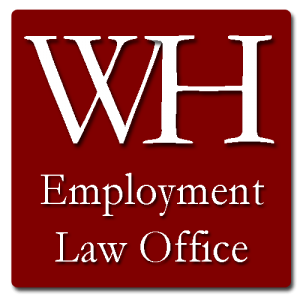PROTECTED CLASSES: How Many Are Out There?
Posted March 2023 by S. Ward Heinrichs
PROTECTED CLASSES: How Many Are Out There?
Federal and California law protects certain classes of employees from discrimination, harassment, retaliation, and adverse employment actions. Generally, the law in California protects more classes of employees.
Under the Federal law, the Equal Employment Opportunity Commission (EEOC) enforces laws that protect the following classes of employees from discrimination: race, color, religion, sex, pregnancy, sexual orientation, gender identity, national origin, age, and disability and genetic information. The EEOC uses several different laws and court interpretations to compel workplace protection for the above groupings.
California has several different laws that protect various classes of employees from discrimination, harassment, and retaliation, but the most significant law is the Fair Employment and Housing Act (FEHA). That law protects the following classes of employees: race, religious creed, color, national origin, ancestry, physical disability, mental disability, reproductive health decision making, medical condition, genetic information, marital status, sex, gender, gender identity, gender expression, age, sexual orientation, or veteran/military status.
Arguably, California has more protected classes than those listed in FEHA. For instance, the California Family Rights Act (CFRA) allows workers who have a serious health condition to take up to 12 weeks of unpaid leave. It also gives employees the same leave time to care for a family member, or someone like a family member, who has a serious health condition. Further, it allows bonding with a new born, adopted, or foster child. If a worker has right to take such leave, the employer may not take an adverse employment action against that worker because he or she took leave.
Similarly, an employer may not retaliate against an employee who reports illegal workplace conduct to an outside agency or company superior. Such protection arguably makes those employees a protected class of whistleblowers under Labor Code §1102.5.
Some California cities have additional protected classes. For instance, San Francisco bans discrimination and harassment based on height or weight.
Other laws grant protection against retaliation, and one might argue that it creates additional protected classes. For instance, in California, an employer cannot retaliate against a person for legitimately taking sick leave. Likewise, an employer cannot retaliate against a worker for taking bereavement leave. Do those laws create more protected classes? Maybe not, because those who are sick and those who bereave are not necessarily protected until they exercise their rights to take leave. In a similar vein, employees who exercises rights under the CFRA and Labor Code §1102.5 may not be in protected classes either.
Employment Law Office of Ward Heinrichs
4565 Ruffner Street, Suite 207
San Diego, CA 92111
858-292-0792
(858)408-7543 (fax)
